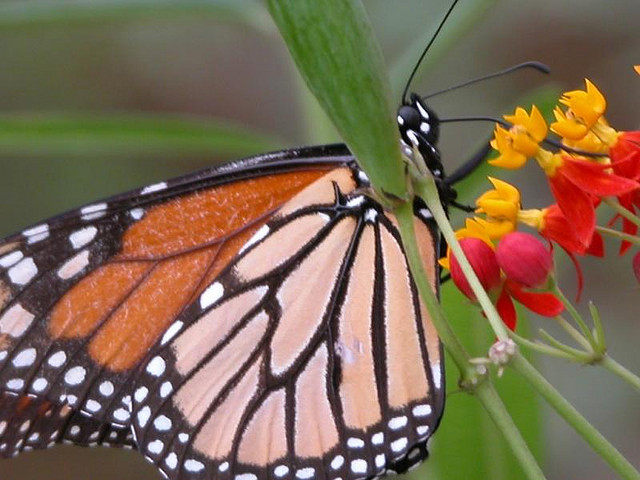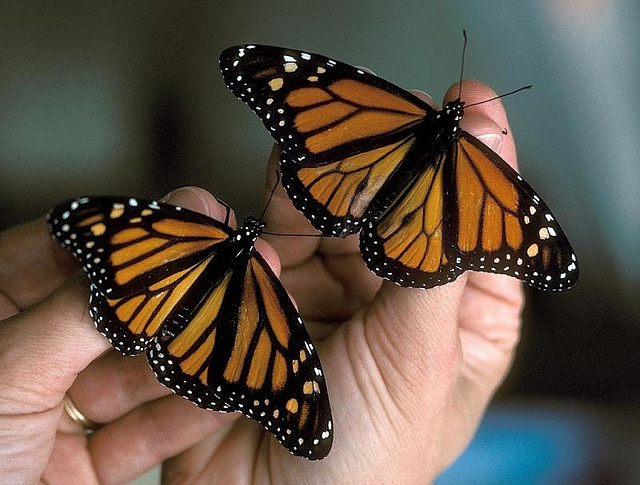Monarch Week: Milkweed and Monarchs
Tuesday, January 6th, 2015
This is Passport to Texas
Why are monarch butterflies declining?
06— The current thought is that it is actually several different factors that are contributing to the decline that we’re seeing.
Ben Hutchins is Texas Parks and Wildlife’s invertebrate biologist. Deforestation of the species’ winter roosts in Mexico, unusually cold winters, and prolonged drought along their migratory path, all have negative effects.
13— And then, finally, what this project is addressing is this widespread decline in availability of milkweed plants. That’s due to a couple things: predominantly increased use of certain herbicides.
Texas Milkweeds and Monarchs is a new citizen science project where folks keep an eye out for the state’s 38 different species of milkweeds –vital to the monarch’s lifecycle – and then then share their observations on the website iNaturalist.org.
21— We have experts that are going to be looking at these observations and identifying those. We’re also working on a guide to Texas milkweeds, and that guide is going to be freely available online. It’s going to have pictures of all of the different species of milkweeds, distribution maps—so you know if you’re in the right part of the state—and also some of the key characteristics.
How you can get involved helping monarchs – that’s tomorrow.
For Texas Parks and Wildlife…I’m Cecilia Nasti.




 Passport to Texas is a
Passport to Texas is a  Passport to Texas is made available by:
Passport to Texas is made available by: